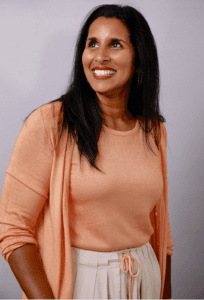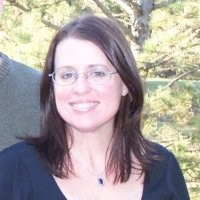In March 2018, more than 31,000 students from across the globe uploaded video pitches to Brandstorm, L’Oréal’s annual competition to disrupt the beauty industry. This year’s challenge: Invent the professional salon experience of the future.
The $32 billion global cosmetics giant has hosted Brandstorm for 26 years as a way to introduce students to L’Oréal’s culture and way of working. But it’s more than just an elaborate and expensive recruiting tool. Brandstorm has become a vital learning path for both students and employees, according to Carole Pasco-Domergue, chief marketing officer for global HR in Paris. “One of the key objectives of Brandstorm is to contribute to the development of young talent,” she said. “There are multiple learning touchpoints throughout the entire experience.”
Kicking Off the Competition
Every January L’Oréal posts a new Brandstorm challenge and invites teams of three students to create a pitch for an idea, then upload it to the site in March. The company promotes the competition at campus events, in classroom talks, on its website and via social media. L’Oréal leaders review the submissions and the top 10 to 12 teams in each country move on to the semi-finals.
The winners of that round spend April honing their ideas with support from a L’Oréal employee mentor and through access to more than 70 online courses specifically designed for Brandstorm that cover everything from marketing and speaking techniques to relevant industry trends.
The online courses and coaching are essential to the students’ experience. “They all come to Brandstorm with different skills and expertise,” said Sumita Banjeree, head of talent acquisition for L’Oréal USA in New York. Providing them with a variety of training options on the skills they need to deliver a winning presentation that is relevant to the company ensures every team has the same chances for success. “It levels the playing field.”

In 2016, Cookie Guck was one of those students. Guck first learned about Brandstorm as a junior at the University of Texas in Austin when a L’Oréal representative and some of the company’s recent hires spoke in one of her marketing classes. She put together a team to address the 2016 challenge — to create a marketing strategy targeting millennials.
Guck’s team came up with an idea for an artificial intelligence app named Claire that would introduce young consumers to L’Oréal products through interactive AI bots representing three target customers: a high school student, a college student and a young adult. “AI was still science fiction back them, so we had to figure out how to explain it in a way that was meaningful,” Guck said. They put together a five-minute pitch, which they presented to a campus recruiting rep (the digital pitches began in 2017).
Their idea helped them make it to the semi-finals, where they had a month to expand it into a 15-minute pitch that they would present to L’Oréal executives in New York. April is like a mini accelerator program, where students flesh out their ideas and get ready to pitch them to the executives, Banjeree said. “It’s amazing to see how the students come to life.”
Mentors and Champions
In April, the mentoring moves into full swing, and Banjeree makes sure all of the mentors are well prepared to guide the students to success.
Every year, each country chooses six to 10 mentors from the department that is aligned with that year’s theme. Banjeree’s team works with managers to identify the best candidates based on their demonstrated willingness to help others and to be a brand ambassador. Those employees receive informal one-on-one training from her staff on how to be a good coach, what’s expected of them and how to guide the students in delivering the best presentation they can. They also receive a brief on each teammate and what skills and education they bring to the table.
Being chosen as a mentor is considered an honor among employees. “It is an opportunity for them to share their own story and experiences with someone else,” Banjeree said. “It’s a big part of what makes Brandstorm interesting for participants.”
Banjeree also makes sure all of the judges in each country get training on how to judge the presentations based on very specific weighted criteria, including presentation skills, originality and relevance of the idea, and how it aligns with the goals of the theme. “This ensures all the best teams make it to Paris,” Banjeree said.
The Final Round
Guck’s team was assigned a L’Oréal mentor along with a coach from a partnering ad agency to help them refine the pitch. In the original presentation, they focused on the mechanics of the idea — how consumers would interact with the app via different touchpoints — but their mentor encouraged them to focus more on storytelling and demonstrating how the app would engage with consumers. “She also helped us think about the questions the judges would ask and how we could fine tune our presentation by going into more detail,” Guck said.
Her team also took advantage of the online courses to better understand L’Oréal’s specific skin care market and to learn how to deliver better presentations. “The e-learning was really beneficial in helping us understand what the leaders would look for from us,” she said.
Their pitch was selected as a finalist, and in May 2016, Guck’s team, along with hundreds of other winners from 58 countries, were flown to Paris for the Brandstorm finals where three teams would be named the winners and awarded prizes for business innovation, digital innovation and CSR innovation. In Paris, students continue to receive support from their mentors and through workshops — also introduced in 2017 — that cover beauty trends, techniques for pitching ideas and how to create a digital strategy. “The workshops are designed to help them answer questions they will be asked in the pitching process,” Pasco-Domergue said.
This final prep ensures the students can confidently present their ideas to the L’Oréal executives who make the final decisions. It’s also the ultimate culmination of the learning process, Pasco-Domergue said. “By the end of the program the students have essentially learned how to launch a new product.”
Guck agreed. She said that working with a mentor and immersing herself in the L’Oréal culture and way of doing business helped her hone her marketing skills and prepared her for life in the workplace. “Participating in Brandstorm made me a better presenter and more confident speaking off the cuff,” she said.
While her team didn’t win, in November she was invited for a job interview and ultimately landed a position at L’Oréal as a marketing associate in the management development program. Even though she landed a role in fragrances rather than skin care, where she did most of her Brandstorm research, she said that her first months on the job felt like a repeat of the competition. She was put on a team and given six weeks to develop a marketing strategy for that division — and this time she knew exactly what to do.
“Brandstorm taught me how to find the information quickly, and to understand what I needed to know right away and what I could learn later on,” she said. “I really felt prepared.”
The ROI of Brandstorm
Many Brandstorm participants are eventually hired by L’Oréal — though many more take the experience to other companies, which begs the question: Is it worth the time and money to host this annual event? L’Oréal leadership think so.
“These aren’t just your average recruits,” said Pasco-Domergue. The initial pitching process helps the company identify top talent from a diversity of schools and immerse them in the L’Oréal experience, where they learn about the company and connect with employees. “It gives them great exposure to what it’s like to work at L’Oréal in an authentic way,” Banjeree said.
For those who are hired, Brandstorm acts as a new hire boot camp, teaching them about the entrepreneurial approach to work at L’Oréal and ensuring they have a baseline understanding of market trends. “It’s like they have been working for us for years,” Pasco-Domergue said. “They are already engaged and happy to be here.”
Even if students aren’t hired, Brandstorm is an incredible learning experience and gives students the opportunity to learn about who the company is and how it works. “That turns them into advocates for the brand,” Pasco-Domergue said. “You can’t achieve that from a campus recruiting fair.”
Sarah Fister Gale is a writer based in Chicago. She can be reached at editor@CLOmedia.com.














